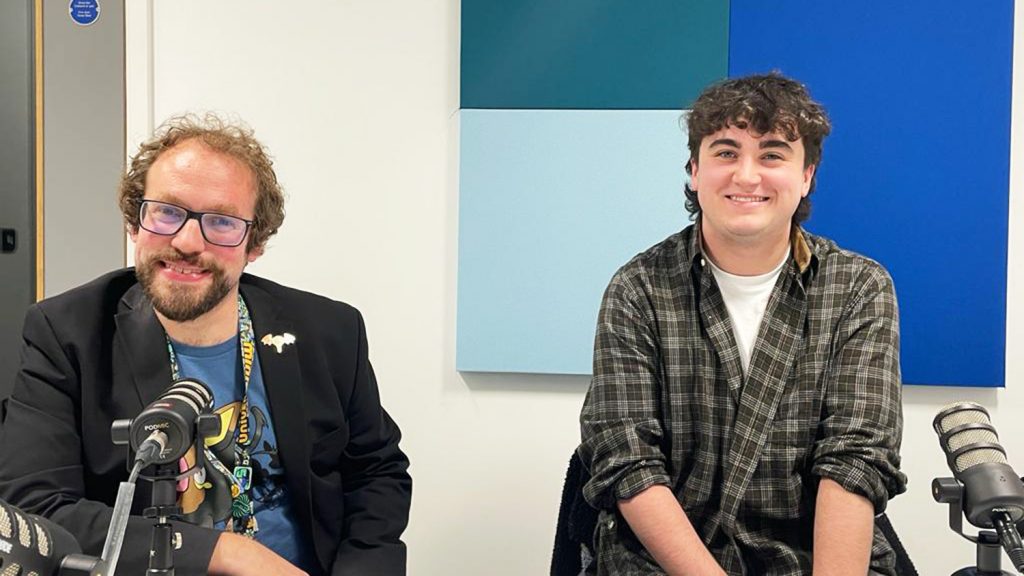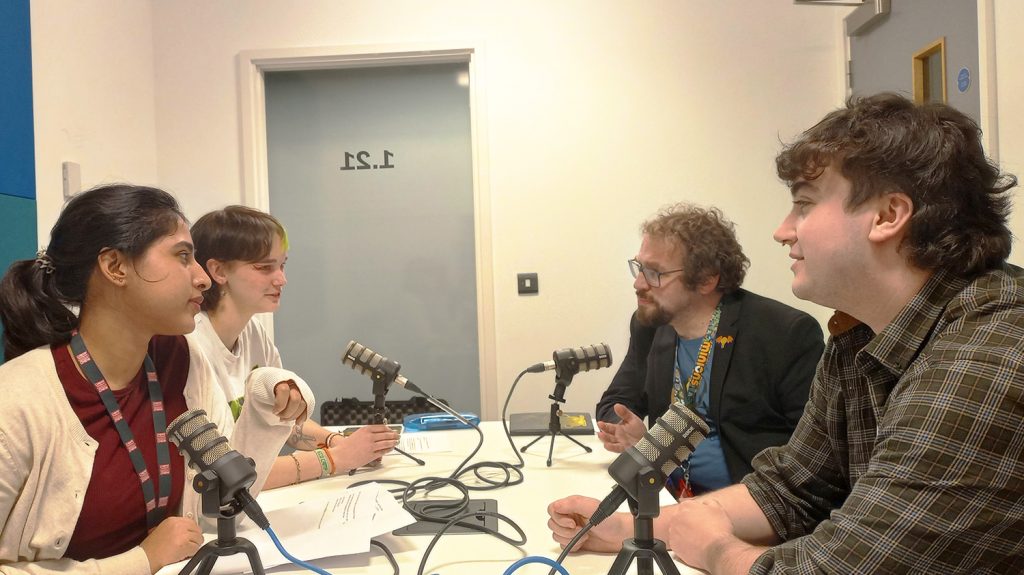Cardiff film experts talk about breaking down barriers for minorities in film and TV in new podcast Reel Equality

Gaining access to film and TV production is still “notoriously difficult” for minorities, according to industry experts.
Women accounted for only 26% of all directors of European feature films between 2018 and 2022, found a recent report by the European Audiovisual Observatory. At the same time, GLAAD, a non-profit organisation focused on LGBTQ+ advocacy, reported that only 16 out of 77 films theatrically released by major studios in 2021 included characters from the LGBTQ+ community.
These numbers don´t come as a surprise. The media industries, especially film and TV production, have been traditionally harder to get into and considered “closed door”, said Ross Garner, senior lecturer at Cardiff University School of Journalism, Media and Culture.
“Making contacts and knowing people within the industry can be notoriously difficult. And that tends to be how you get work and continue getting work”, he added.
Seth Edmonds, assistant to the director of Iris Prize Festival, said holding events like theirs means they can provide a safe space for people to meet and network with industry professionals.

Iris Prize, which held its 18th annual film festival in Cardiff in October, showcases films made by members of the LGBTQ+ community. Events like these can help people from the LGBTQ+ community kickstart their careers in film and TV, Edmonds explained.
Garner and Edmonds discussed various aspects of representation and diversity in film and TV in the podcast Reel Equality. In the episode they highlighted the issue that access to jobs behind the screens is often hindered by decision makers.
“So much of the deal making that gets done involves producers, agents, talent, agencies, and so on, all of which are dominated by cis white men that occupy the positions of power”, said Garner who studies the spatial and material cultures of media consumption.
Frameworks which exist to make the screen industries more inclusive, such as the BFI Diversity Standards, also often fail to encourage diversity: “A lot of companies think that they are being forced to do diversity. And so, they’re doing it at low levels, which feels very performative”, said Edmonds. This can mean they put LGBTQ+ characters in the background who can later be easily edited out for markets which don’t support such representations, he said.
A lot of companies think that they are being forced to do diversity. And so, they’re doing it at low levels, which feels very performative
Seth Edmonds
Garner agrees that reducing diversity to quotas and percentages has not benefitted the industry. Instead of hiring people to “tick a box”, they should make sure new hires also get proper work and gain a network which will help them further their careers in film and TV, he added.
Edmonds, who has been working with Iris Prize for a year now, said: “I think there are more changes to be made in society before we see those changes reflected in TV and film. I think it’s always going to be a little bit behind. But I’m hopeful.”
